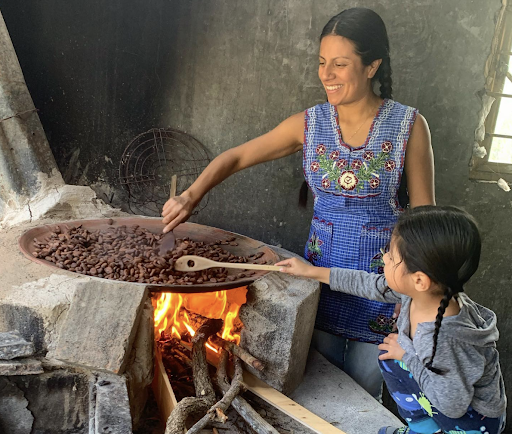Among the biocultural richness of Oaxaca, Mexico, is the way that Zapotec families combine and use different species of mezcal-making Agave, of which there are about fifty species. The traditional cultivation of multiple species of Agave and the way that it is naturally processed adds value to a distilled drink called mezcal. Over the past decades, this practice has been displaced by foreign mezcal industries that pursue profit over cultural preservation and healthy agroecosystems, focusing on as few as five species.
At Matatlán, not only has community cohesion become threatened, but dozens of creeks are being polluted with the distillate waste. In order to stop and revert this trend, Mi Oaxaca is providing a place-based cultural preservation project in Santiago Matatlan that will eventually help shape the traditional mezcal industry and, by extension, the well-being of the community. Hands-on training and workshops for community members will grant them the confidence they need to succeed as land stewards and leaders in their craft. Topics will include cost analysis of sustainable cropping and harvesting and the economic and environmental benefits of maintaining Agave seed diversity.



